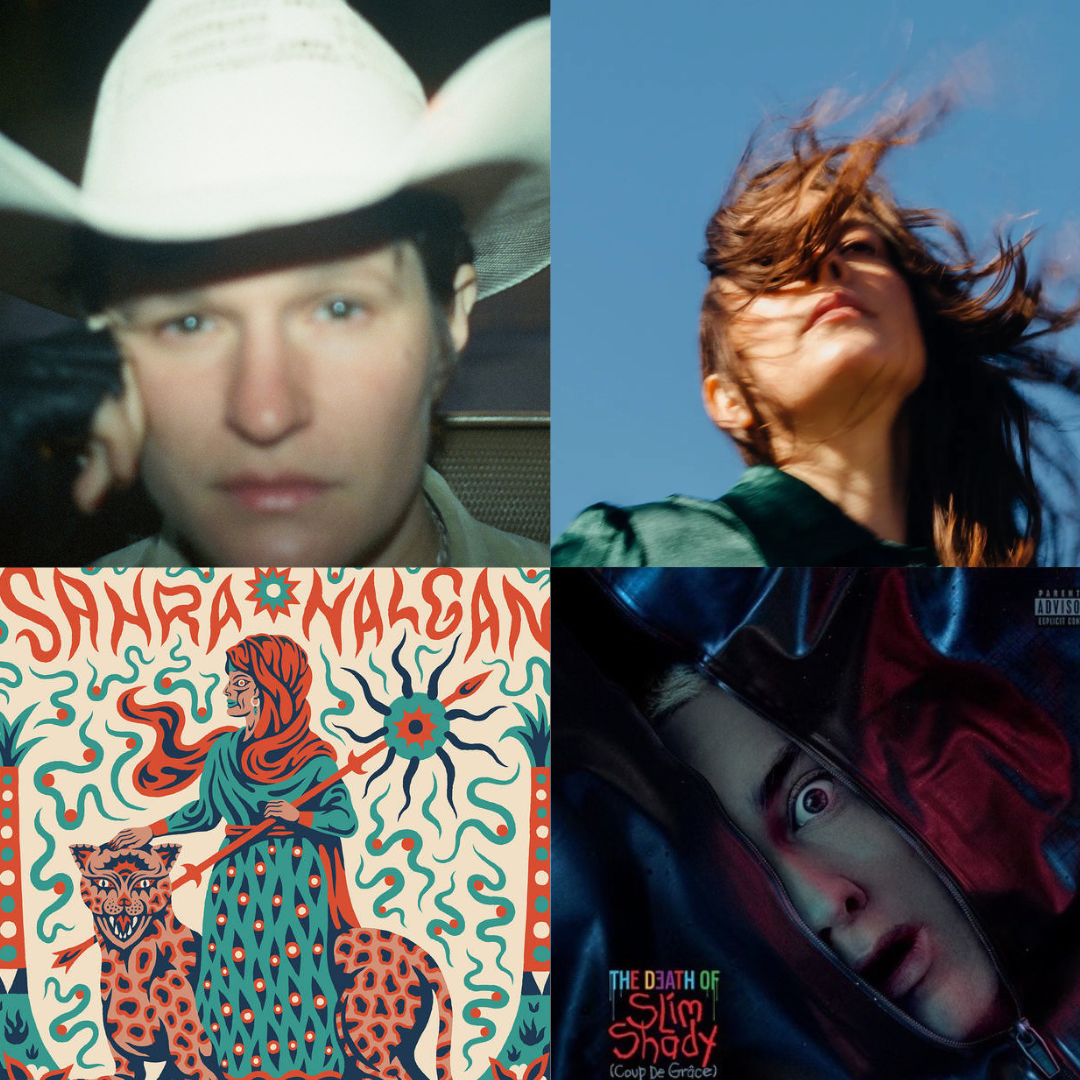











Jlin: Akoma (Planet Mu) I’m not arguing against claims for her genius, but she’s beholden to an aesthetic so clinical the Senate Republicans are scheming to defund it (“The Precision of Infinity” ft. Phillip Glass, “Summon”) ★★★
Twisters: The Album (Atlantic) Those who have never seen/listened to a big dumb movie/soundtrack should consider it (Miranda Lambert, “Ain't in Kansas Anymore”; Megan Moroney, “Never Left Me”; Lainey Wilson, “Out of Oklahoma”; Tyler Childers, “Song While You’re Away”) ★★
Avalanche Kaito: Talitakum (Glitterbeat) A Burkinabé, a Frenchman, and a Belgian walk into a bar… (“Tanvusse,” “Borgo”) ★★
Shellac: To All Trains (Touch and Go) “I’m through with music from dudes⁄What you do isn’t brave⁄All I care about⁄Is chick new wave” (“Chick New Wave,” “Scabby the Rat”) ★★
The Libertines: All Quiet on the Western Esplanade (EMI) Slick producer and song doctors brought in to, er, prop them up, which leads to some credible rockers and the hideous “I've Got the Melody,” the “I Write the Songs” for aging pop punks (“Oh Shit,” “Run Run Run”) ★★
KOKOKO!: BUTU (Transgressive) With COVID protocols bringing the participants down to singer and producer, more a club record than an art project, a judgement depending of course on your idea of a banging night out (“Mokolo Likambu,” “Motoki”) ★★
Ibibio Sound Machine: Pull the Rope (Merge) I ask you, did Bizarre Inc score two pretty good songs per album? (“Pull the Rope,” “Dance in the Rain”) ★

Louis Armstrong: Louis in London (Verve) Before you accuse the pharoah of succumbing to extreme cardiac fibrosis, consider that five tracks from this long–shelved 1968 concert also figure into Sony’s immortal 16 Most Requested Songs, where they are more exuberantly played and more affectionately sung — here, you’ll roll your eyes at the practiced schtick with trombonist Tyree Greene on “Rockin’ Chair,” but on that version, recorded ten years earlier with Jack Teagarden, you’ll laugh out loud. I suppose there’s a documentary value in hearing an adoring BBC audience actually clapping on the offbeat, even if the ditty bringing their palms together is “Hello Dolly.” But unless you feel a need to hear Pops indulging the jewel–rattlers with “You'll Never Walk Alone” or “The Bare Necessities” on either black, blue, red, or translucent green vinyl, say nay. B− Grade: B−

Yaya Bey: Ten Fold (Big Dada) Intellectually, I appreciate that neo−soul sometimes indulges a “post−song” aesthetic, but while the nimble bass playing of Butcher Brown’s Andrew Randazzo does make an impression, Bey’s (no, not that Bey, I mean this one) backing tracks sound way too much like “interludes” from a more conventional R&B record extended to three minutes. If you think I’m being harsh, compare this to 2022’s slightly more beatwise Remember Your North Star, where her melodies meander less if not necessarily coalesce into fully formed ideas. More enticingly to critics however, this album comes attached to a back story: the recent death of her father, which without question gives a forthright young woman a license to ruminate. If only her coping mechanisms were a little more relatable than “Eating oysters at the Paris stop⁄Copping Gucci at the vintage shop.” C+ Grade: C+